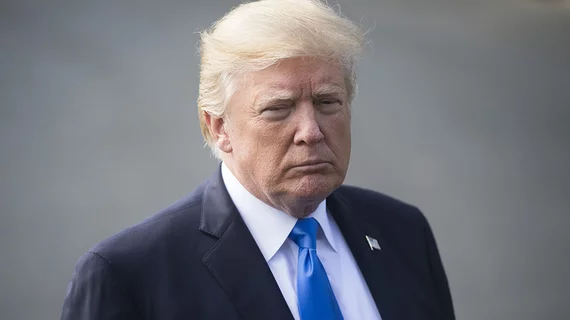Top cardiologist weighs in on Trump’s physical: ‘Losing some weight would help’
Results from President Donald Trump’s latest physical, released Feb. 14., reveal the president’s overall cholesterol has improved since last year’s check-up, according to the Associated Press. But Trump has also gained weight and is now classified as obese, which could raise his already elevated risk for heart disease.
The White House reported Trump’s weight as of February was 243 pounds, pushing his body mass index to 30.4—0.4 points above what American physicians consider obese. The president isn’t alone in his diagnosis—some 40 percent of U.S. residents are obese—but cardiologists worry his exercise habits and propensity for fast food might increase his risk for CVD, diabetes, stroke and some forms of cancer.
“Losing some weight would help modify some of the risk factors for heart disease,” Robert Eckel, a former president of the American Heart Association and a cardiologist at the University of Colorado, told the AP. “A 20- to 25-pound weight loss would be what I’d recommend if he were my patient. And that’s not a quick fix.”
Eckel recommended that Trump aim for an LDL below 100 mg/dL. At this year’s physical, his total cholesterol was 196 and his LDL cholesterol was 122—down 21 mg/dL from last year. Trump’s physician, Sean Conley, said he would be raising the president’s statin dosage to 40 mg a day to bring those readings down further.
Aside from his cholesterol and weight, Trump “remains in very good health overall,” Conley said. His resting heart rate was 70 beats per minute and his blood pressure was 118/80, both acceptable numbers.
Read more from the AP below:

